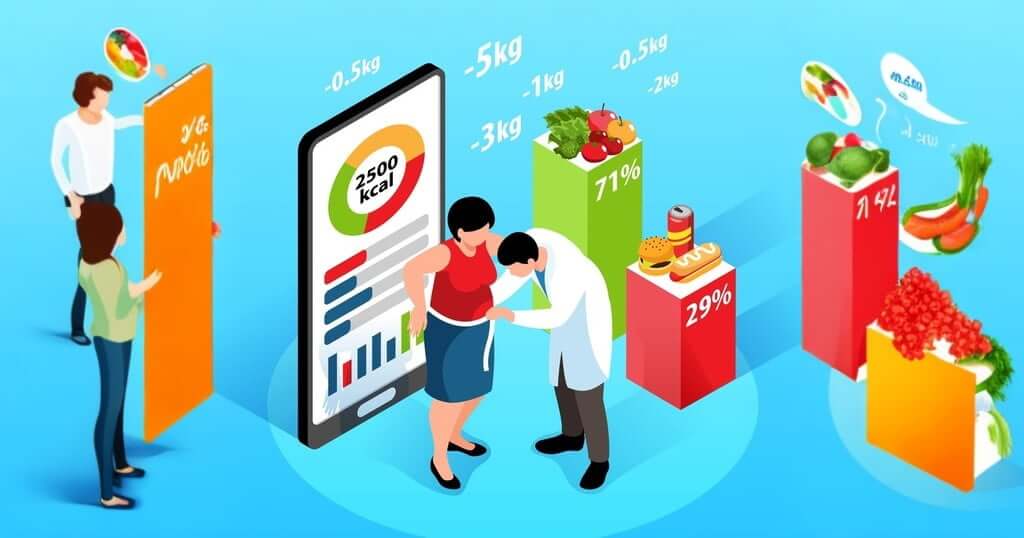AI Your New Dietitian
In the previous blog, we learned how AI is capable of giving personalized advice but is AI your new dietitian? Personalized nutrition means that nutritional advice and food recommendations should be individualized. The differences in each body’s genetics, microbiome distribution, and metabolism give rise to different nutritional needs and outcomes even when having identical meal plans.
Hence it is crucial to consider these factors as well as the person’s lifestyle, height, weight, medical history, and personal eating habits when designing a diet plan. Personalized diets facilitate the permanent transition from bad to good lifestyle changes. Recent studies have proved that personalized diets lead to better health outcomes. All these things can be taken into account more conveniently by AI and the results are generated faster. This begs us to answer, ” Is AI your new dietitian?”. For this let’s first walk through the future possibilities that AI has to offer which make it a likely future dietitian. Next, consider the limitations it presents which prevent it from being a total human replacement.
Future Possibilities: How close is AI your New Dietitian?
The personalized nutrition market will amount to $922.72 billion by 2030 according to estimates by Grand View Research. With the increase and improvement of wearable devices and digital nutrition platforms, the process of data collection will become easier. As the amount of collected data is expanding so is the quality of AI-generated output.
As lab technology is upgraded, the data used by AI will get enriched. For example, labs may start producing results more promptly and the accuracy of the lab reports may also rise. The variables that AI takes into account to produce customized diet plans are currently limited. In the future, when a wider range of factors are taken into consideration, AI will become more reliable.
Artificial Intelligence may be able to figure out which food intolerances are likely to present in certain individuals even if they haven’t yet been exposed to such foods. AI will also be able to surmise what types of food preferences an individual may have. AI may propose innovative food ideas to make food tastier and food supplements to fill the nutritional gaps present in the market.
Investors have an opportunity to capitalize on this market by investing in personalized nutrition startups that employ AI. In this way, they can contribute to the health and well-being of millions of people around the globe. The use of AI in 2023 and beyond in all industries and sectors is unavoidable.
Limitations: What prevents AI from Being your New Dietitian?
Ethical and Privacy Concerns in AI-Powered Nutrition:
Nutrition Virtual Coaches can in no way replace actual human nutritionists yet. Users need to be made fully aware of this fact. In addition, users, and nutritionists should be educated about the working mechanisms of the algorithms running such apps.
Another important limitation of such coaches is their possible biased behavior. It is tried to train this kind of AI using data from diverse populations but even now a large chunk of that data comes from a specific subset of a population with a particular race, religion, and socioeconomic status.
Steady data protection policies need to be put in place to protect user’s sensitive information as is the case with all types of AI platforms. Informed consent is a critical component of data protection but its proper execution itself is faced with challenges. Whether users’ consent to ideas and practices they can’t understand counts as consent is unclear.
Reliability and Accuracy of AI Recommendations:
The personalized nutrition recommendations given by AI are only as accurate as the data used to derive them. The more exhaustive and versatile the data, the more accurate the AI deductions will be.
The field of nutrition is constantly evolving and new factors affecting the responses of individuals to particular diets are being discovered. AI technology needs to undergo constant modifications to be fashioned accordingly.
Basic common sense is non-existent in AI and it may link publications in erroneous ways to draw conclusions. The rigid instructions given by AI sometimes fail to fulfill human needs. Humans are in dynamic situations and can only stick to rather flexible advice.
Dietitian-Patient Relationship: Number one reason AI isn’t your new dietitian
A substantial part of a dietitian or nutritionist’s job responsibility is to establish a healthy relationship with their patients. An attitude of empathy, sincerity, and acceptance is crucial for positive clinical outcomes.
AI is in no way qualified to deal with patients going through eating disorders. Sensitive health issues should only be addressed by human professionals and AI may be integrated as a supplement. Many nutrition apps have been taken down by the National Eating Disorder Association because they inadvertently triggered abnormal eating practices.
Machines don’t know how to address users’ fears and issues in an emotionally intelligent way. A nutritionist’s job is to help their patient using alternate approaches when their patients fail to adhere to the recommended diet plans. For this, it is really important to understand where a patient comes from and what is preventing them from pursuing their goals.
It’s been ages since dietitians started giving personalized advice. However, AI for personalized nutrition is a relatively new topic. In the past few decades, we’ve seen a rise in innovative technologies, apps, and wearable devices for monitoring health.
Conclusion:
To answer the question, “Is AI your new dietitian?” we can undoubtedly say that AI is definitely not a human replacement (yet). It may however, help nutritionists in many ways. Thus it is important for all dietitians to learn about the different ways in which they can incorporate AI into their profession to improve their client’s experience.
